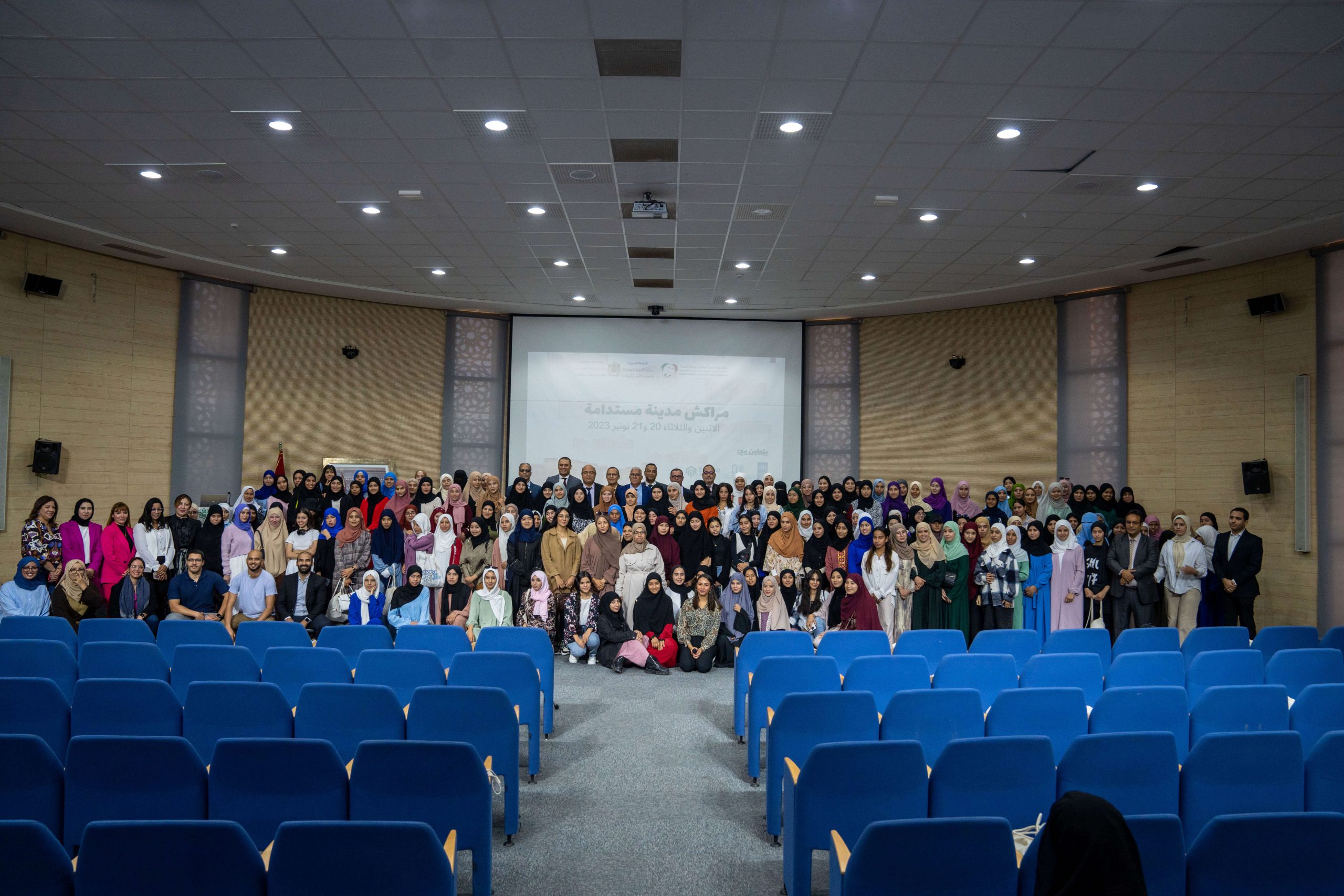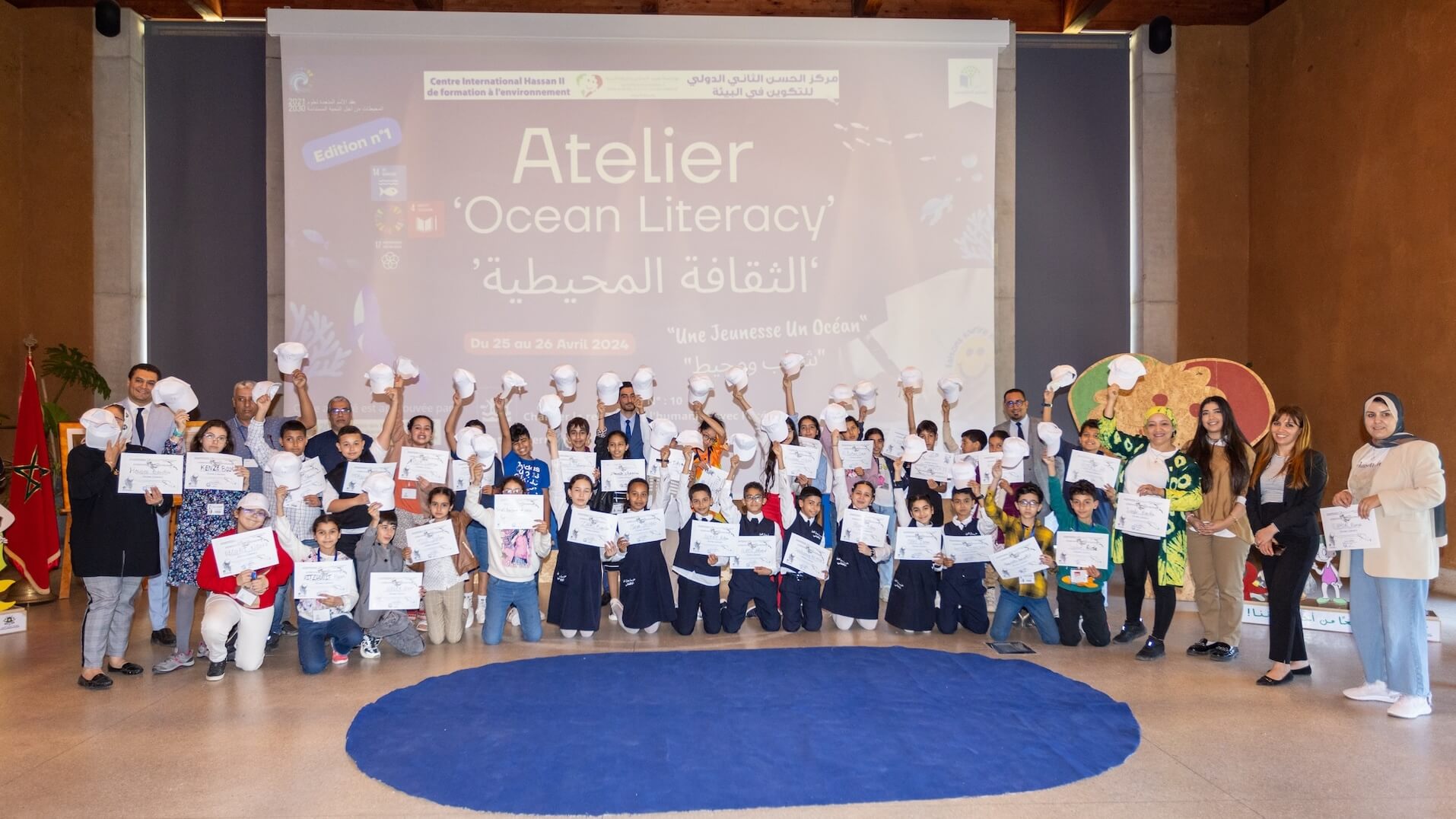
Background
With a solid understanding of environmental issues that our country faces in economic and social development, the Mohammed VI Foundation for Environmental Protection, chaired by Her Royal Highness Princess Lalla Hasnaa, has placed education and awareness at the heart of the mission it was assigned, while giving a prominent place to the education and involvement of youth in order to make them environmentalists and eco-citizens.
The theme, Education and Awareness of Responsible Consumption: My Reason to Take Action, which has been targeted and selected by the Foundation for this Forum, represents a cross-cutting issue and responds to a main concern expressed both nationally and internationally. Its impact on behavior change, resource preservation, quality of life, and economic and social development, for citizens and particularly for youth, make it a topic of great significance.
The promotion of sustainable consumption and production methods was discussed with great worldwide interest during the Rio De Janeiro Summit in 1992. This interest was reaffirmed at the World Summit on Sustainable Development in Johannesburg in 2002, resulting in the Marrakech Process in 2003 to develop a decade based international framework of programs for sustainable consumption and production. The aim is to limit both CO2 emissions and the use of natural resources while promoting low-carbon lifestyles and a green economy, which could achieve social inclusion as well as protect and increase biodiversity and ecosystem services.
Indeed, the evolution of our consumption and production patterns towards more sustainable forms requires mobilizing in all directions and at all levels. Each stakeholder has a role to play in sustainable development:
Teachers significantly participate in awakening learners’ environmental and ethical awareness. They help students acquire knowledge and values and teach behavior consistent with sustainable development. They promote the effective learning of young people about decision-making.
The youth have a strong capacity to mobilize and can become the best environmental advocates and also become agents of awareness. The press contributes to building awareness and developing opinions, and can also influence strategies and behavior change by disseminating information to a large audience;
Civil society, especially associations and NGOs, because of their presence in the field, can facilitate the implementation and monitoring of the sustainable development program. They have a key role in educating and informing citizens;
The public sector develops and implements strategies, regulatory framework, and adequate economic incentives to face the challenges of sustainable development;
The private sector, by assessing the impact of its activities according to environmental, social and economic aspects, may adopt sustainable consumption and production patterns to encourage a responsible use of resources.
The proposed forum will be an excellent opportunity to raise awareness and conduct collective and participatory work to encourage everyone to take action for a socially, economically and environmentally just world.
Also, in order to clearly identify the substance and content of the selected theme and to organize the discussion and analysis and facilitate the formulation of recommendations, the three sub-themes below are proposed. They have been designed as main areas for the forum analysis:
– Educating youth about the environment and sustainable development
– Selecting sustainable production and consumption methods: issues and challenges
– Communication and awareness for responsible consumption
Theme #1
Educating youth about the environment and sustainable development
For several decades, since the 1972 Stockholm conference on the environment, the importance of environmental education has been regarded as an essential means of promoting environmental protection and sustainable development.
Environmental education aims to instill in citizens, from an early age, the feeling of respect and responsibility towards the environment and the rational use of resources. It takes place through awareness, knowledge acquisition and understanding, behavior change, capacity building, and taking action to protect the environment.
The United Nations Decade of Education for Sustainable Development (DESD) led by UNESCO from 2005-2014, provides education with a new momentum. Its aim is to integrate sustainable development into all aspects of education and learning, and to promote its principles, values and practices.
As an environment for learning and transmitting knowledge and action, school allows environmental education to be anchored in the curriculum. It also encourages experimentation and concrete projects on issues affecting the immediate environment. This develops youth skills and practices necessary for their life in society.
The educational process takes place by mainstreaming it into the school curriculum at various education levels, and through extracurricular activities, and initiatives led by various external stakeholders, as well as the acquisition of teaching and learning tools related to environmental protection and sustainable development.
The process of understanding and approaching various environmental issues in schools is recommended at several levels. It also involves priorities, starting with the school environment before expanding to local, regional, national and international concerns.
School, which is the base of various disciplines and the privileged environment for learning, requires a better opening to the outside world for young people to integrate a genuine change in behavior and attitude towards the environment.
Therefore, it is important to boost the participation of all internal and external stakeholders to work towards an environmental education that focuses on student initiative and commitment to taking action.
The questions raised by the environmental education of youth can be numerous, including:
• What are the assessments by young people on methods and approaches used in environmental education?
• How to strengthen the commitment and participation by young people to behave in a more environmentally friendly way?
• What are the stakeholder (NGOs, the press, public and private sectors, etc.) roles and contributions in strengthening environmental education for youth in general and schools in particular?
Theme #2
Selecting Sustainable Production and Consumption Methods: Issues and Challenges
Production and consumption patterns of goods and services are a major cause of the global environmental and social crisis. The most illustrative and most visible effects are: climate change, dwindling natural resources, deforestation, loss of biodiversity, food security, increased raw material requirements, etc. More than ever, a profound change in our individual and collective behavior and lifestyles as consumers and producers has become necessary. It is especially important to move towards a carbon-efficient green economy that is more effective in terms of resource use.
The green economy is growing around the world through a multitude of ways and approaches, including the development of green jobs, cleaner technologies and more sustainable ways to consume and produce. The evolution is accompanied by strong growth in various sectors: About a hundred million jobs today are generated by renewable energy and energy efficiency, recycling activities, waste treatment, new construction methods, etc.
Today, the international community recognizes that the current production patterns are largely dominated by linear schemes that deplete natural resources and accumulate waste. Anything that is produced generates waste that is largely non-recyclable, which causes significant losses on the entire value chain, unlike nature where the production system is circular and where everything that is produced is then returned to the natural environment for reuse.
Alternatives to the current linear model are studied by drawing from the quasi-cyclical workings of natural ecosystems, including the circular economy, where any matter within product development should be recycled or recovered at end of the product life.
More specifically, the circular economy advocates eco design and a flow control throughout the product life cycle (production, distribution, use, end of life processing). It aims to minimize inputs, reduce waste and emissions in order to optimize the flow of energy and matter to yield byproducts that will be reused in other production processes.
This concept, already deployed in many countries for several years, could be a real opportunity to develop new activities and job creation while providing greater competitiveness and minimizing dependencies and costs.
Moreover, with the circular economy approach, important advances are made in terms of integrating environmental and sustainable development considerations in our current approaches, in particular various aspects of using cleaner technologies and conservation approaches for the use of natural resources.
The questions concerning the issues and challenges related to the sub-theme are numerous and diverse:
• What opportunities exist to reform our economic model towards a green economy?
• What challenges and issues are associated with such developments (they can be technical, educational, cultural, material, etc.)?
• What recommendations can we make for a greater commitment to sustainable and responsible production and consumption?
Theme #3
Communication and Awareness for Responsible Consumption
The adoption of sustainable production and consumption methods requires the preparation and mobilization of stakeholders who are responsible, committed, aware of social and environmental impacts of their actions and consumption approaches, and better trained to meet the challenges both today and in the future.
The act of ‘consumption’ allows any citizen stakeholder, through his or her choices, to develop environmental, cultural, social and economic practices. It enables consumption with full knowledge of the direct and indirect impacts on the community and on other places in the world, on everyone’s quality of life, on the use of natural resources, and on social and economic development. To build a solid awareness of all these issues, the media and various communication tools are of paramount importance.
Mass media is in fact a powerful vehicle for shaping ideas, consumption patterns and even behavior. Regardless of its nature and its medium, the media has conventional functions, both visible and latent, such as research and dissemination of information, training and education, and entertainment in addition to other latent functions that are psychological in character.
A wide variety of public, private and community media organizations as well as digital media can, each at its own level, facilitate awareness and learning about the challenges and key issues related to the responsible use and preservation of resources.
Current media coverage of environment and sustainable development issues focuses on cyclical and occasional events and requires long-term vision and commitment over time in relation to environmental issues and current trends.
Also, to better address different topics in order to simplify and popularize them, it is necessary to gain knowledge and skills, as well as appropriate research and investigation techniques to ensure the relevance, sufficient quality and quantity of information, in accordance with the principles of honest and neutral information.
The communication and awareness component can raise numerous questions, such as:
• Are environment and sustainable development priorities in the news media?
• How to ensure better news coverage and a wider dissemination of information to promote responsible consumption among young people, policy makers, economic leaders and community decision makers?
• What are some proposals to mobilize the press for the environment?

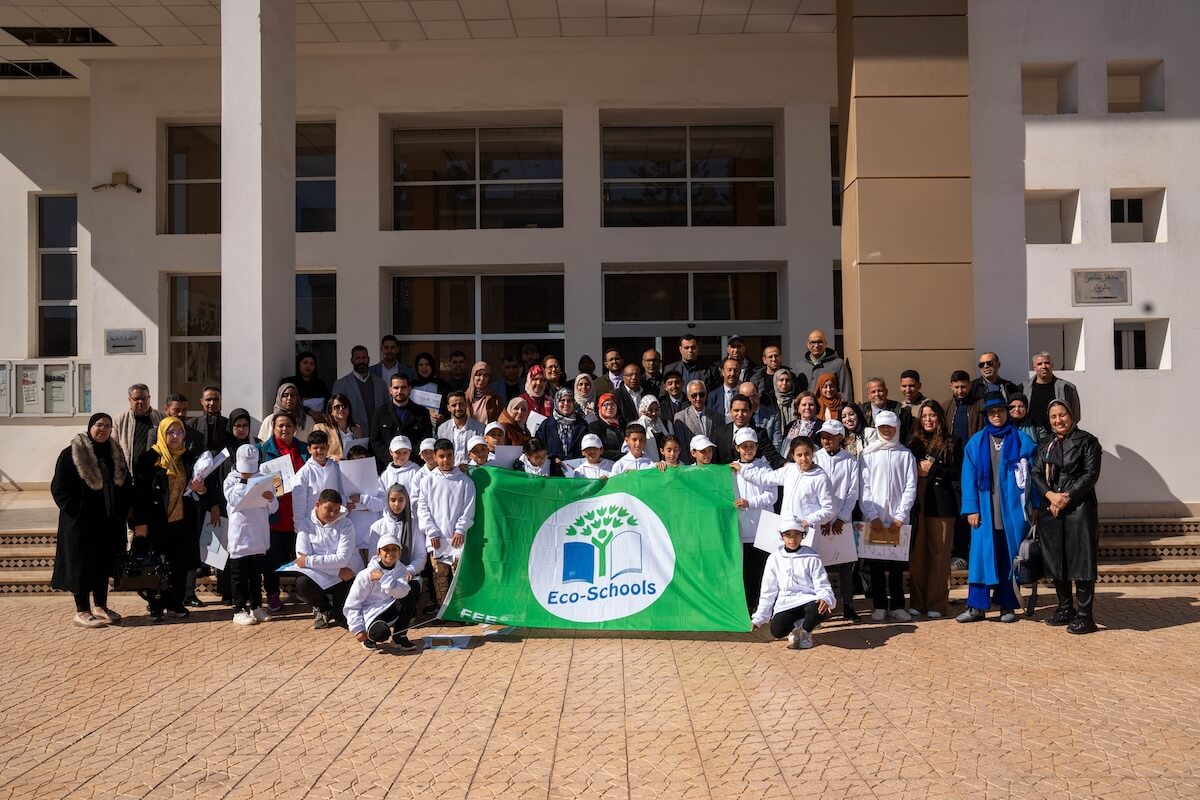
The Foundation holds awareness-raising and training workshops as part of its two programs: Eco-schools and Young Reporters for the Environment for the academic year 2023-2024
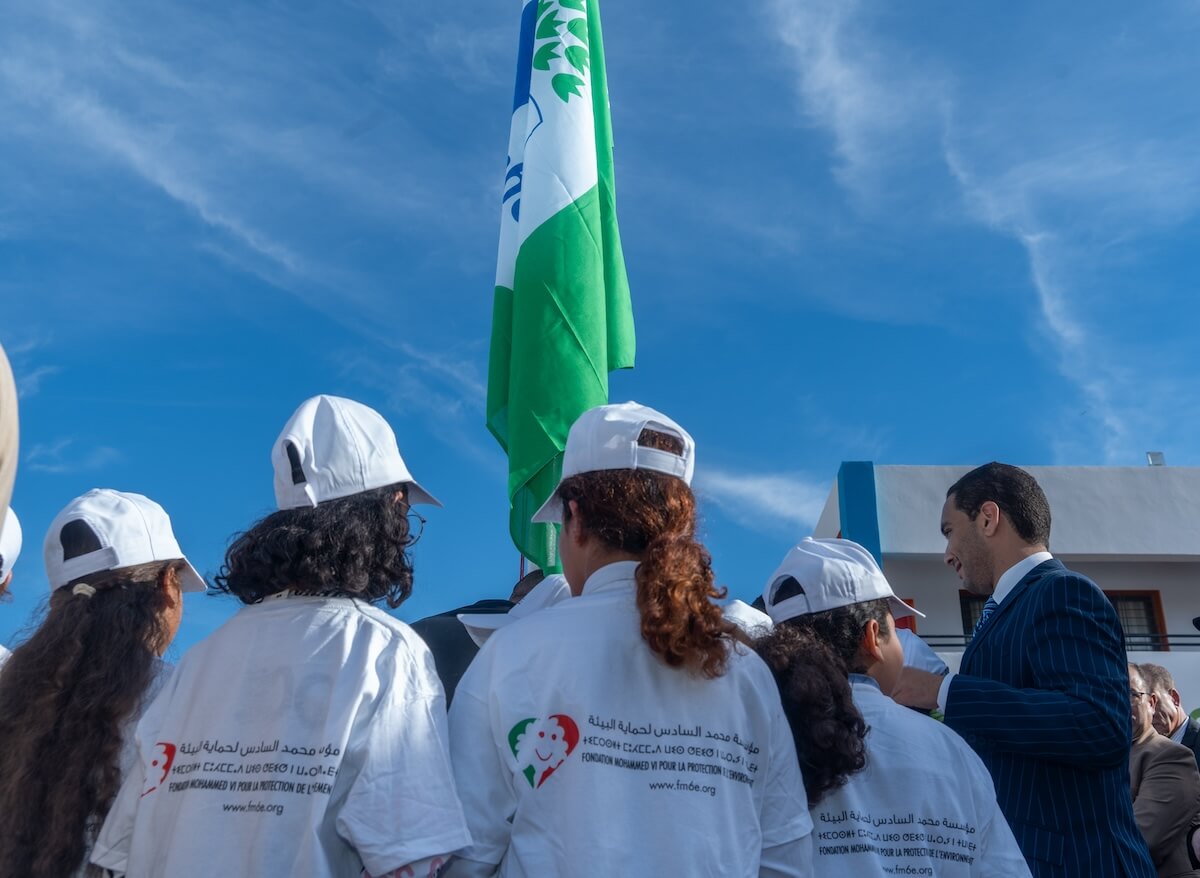
Acquisition of the Green Flag by 89 schools for the academic year 2022/2023: A new record in the Eco-Schools program!
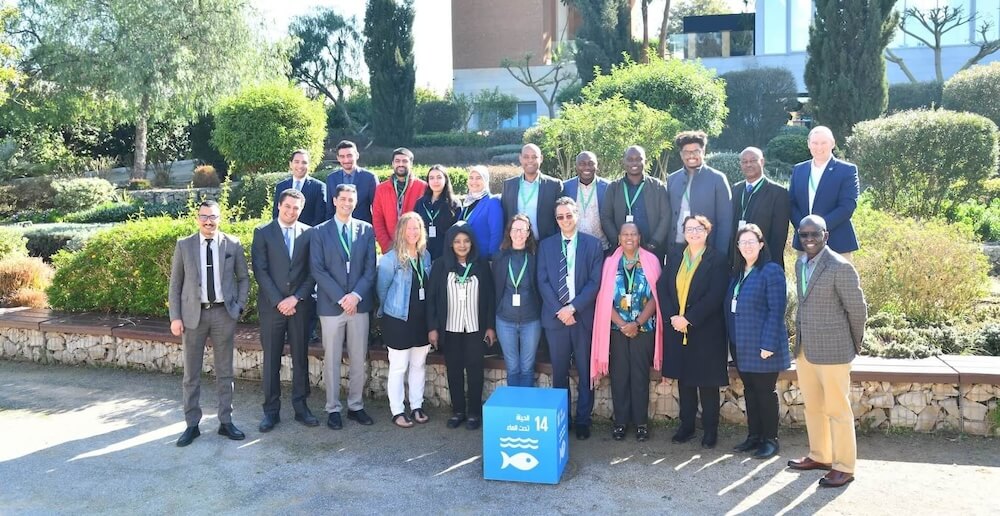
The Mohammed VI Foundation for Environmental Protection hosts the 2nd day of the African Ocean Decade Taskforce Meeting
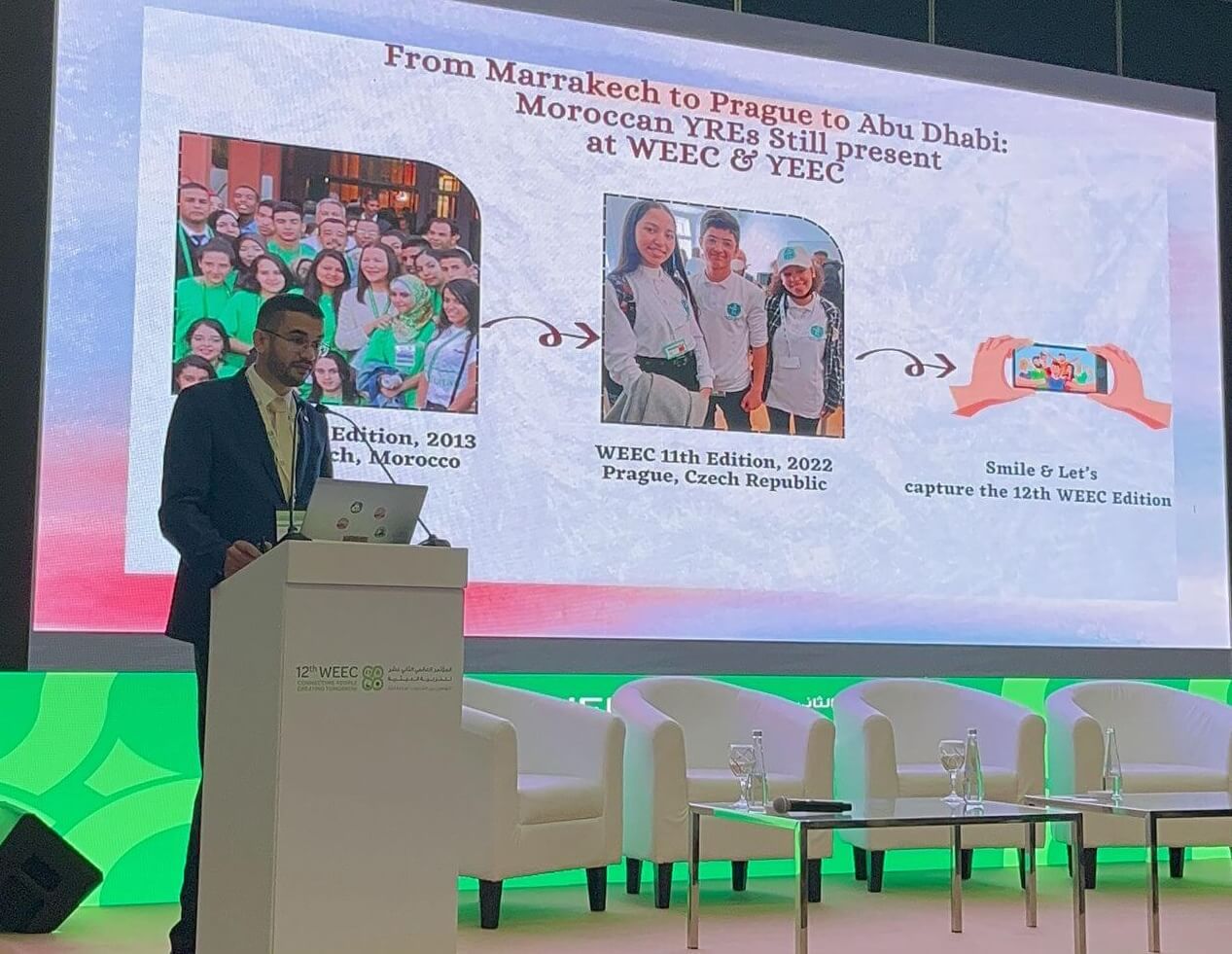
The Mohammed VI Foundation for Environmental Protection at the 12th WEEC, in Abu Dhabi
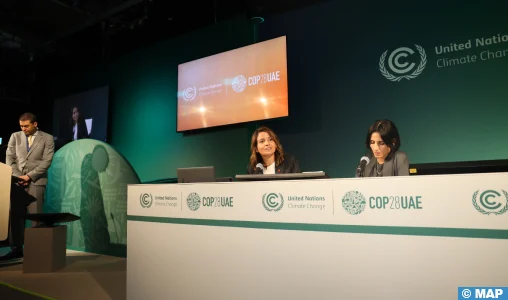
Side event at COP28 : Tracking Africa’s Climate Journey: Successes and Opportunities
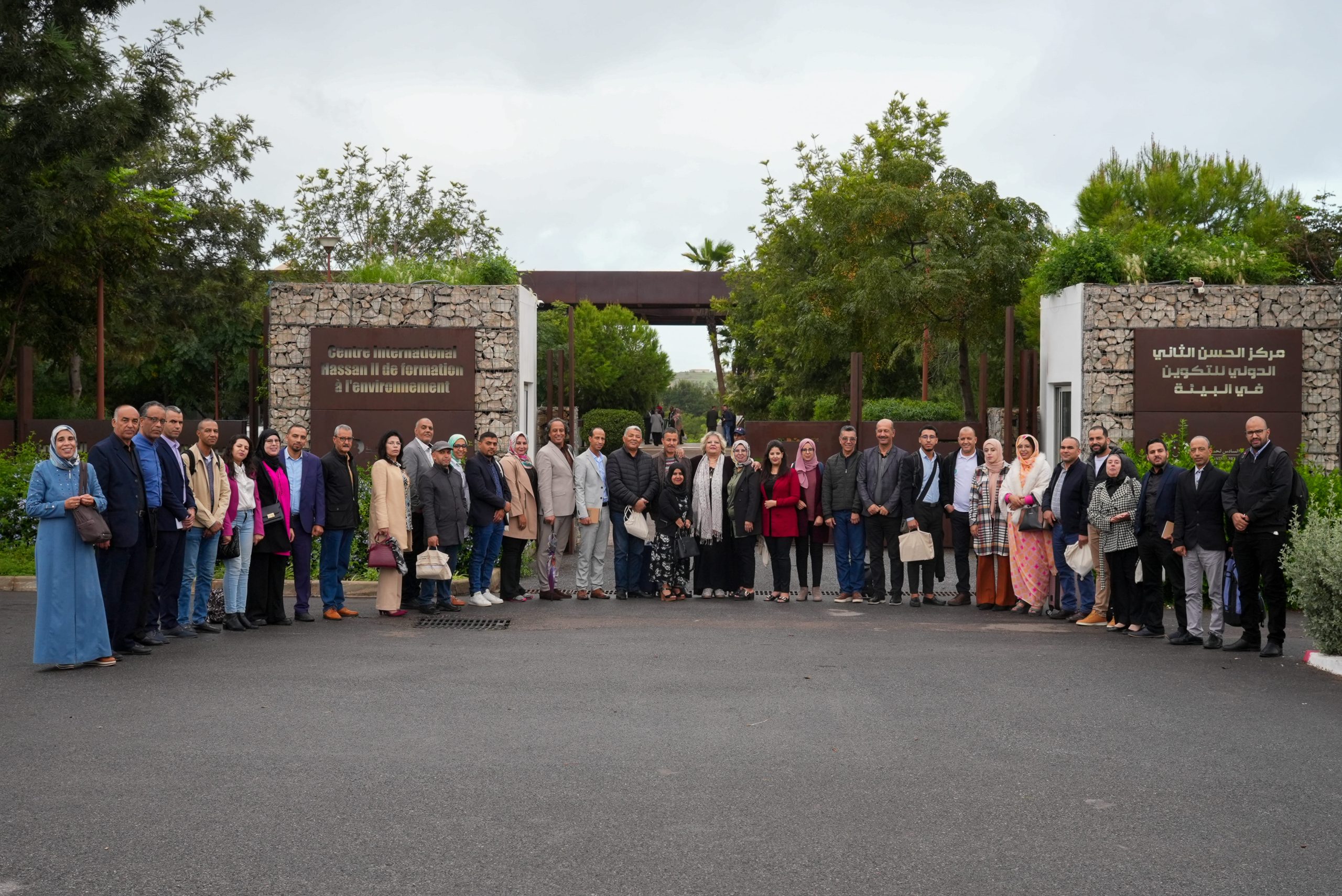
National Training Workshop for 94 Sustainable Development Education Coordinators:
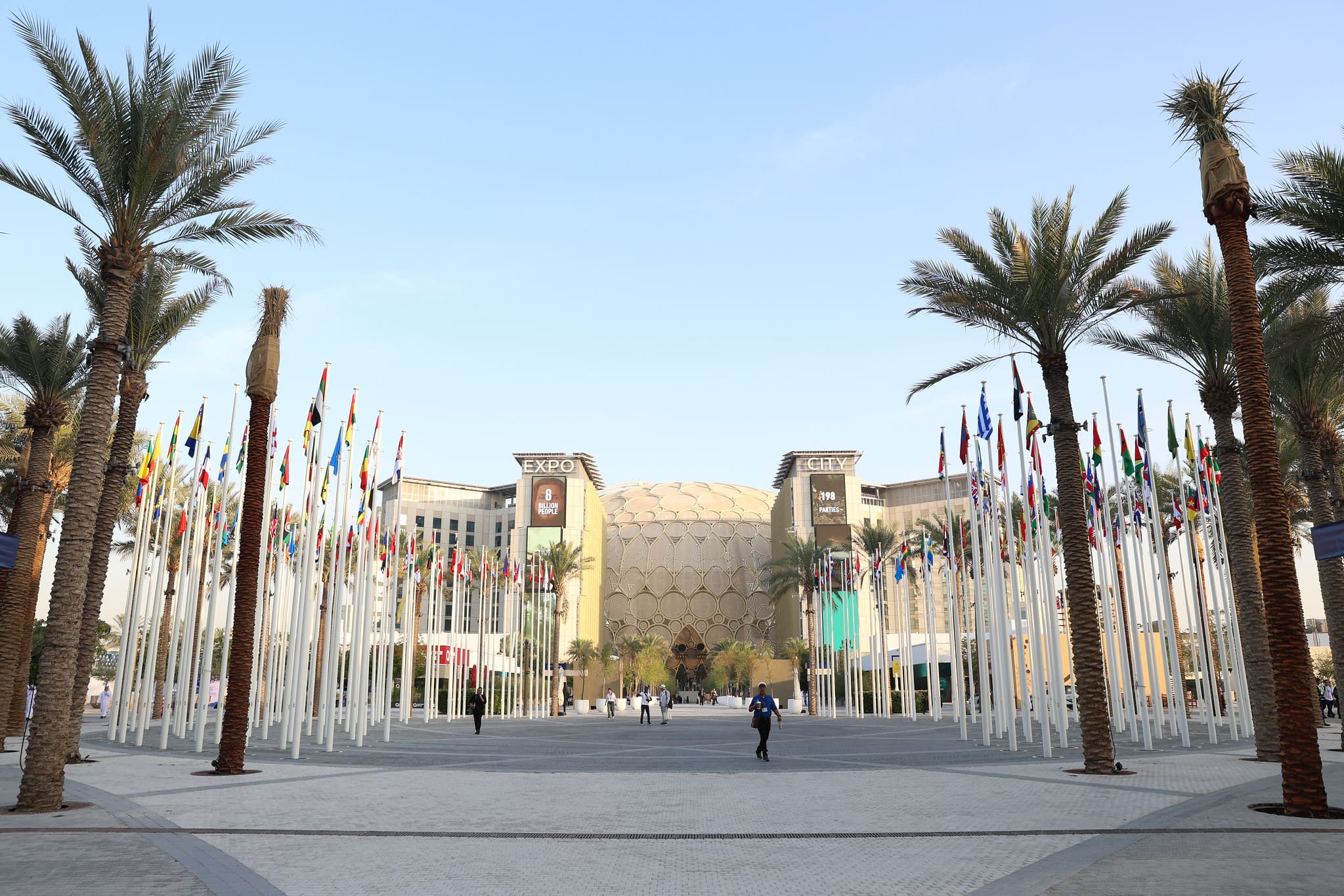
The Mohammed VI Foundation for Environmental Protection takes active part in COP28 in Dubai
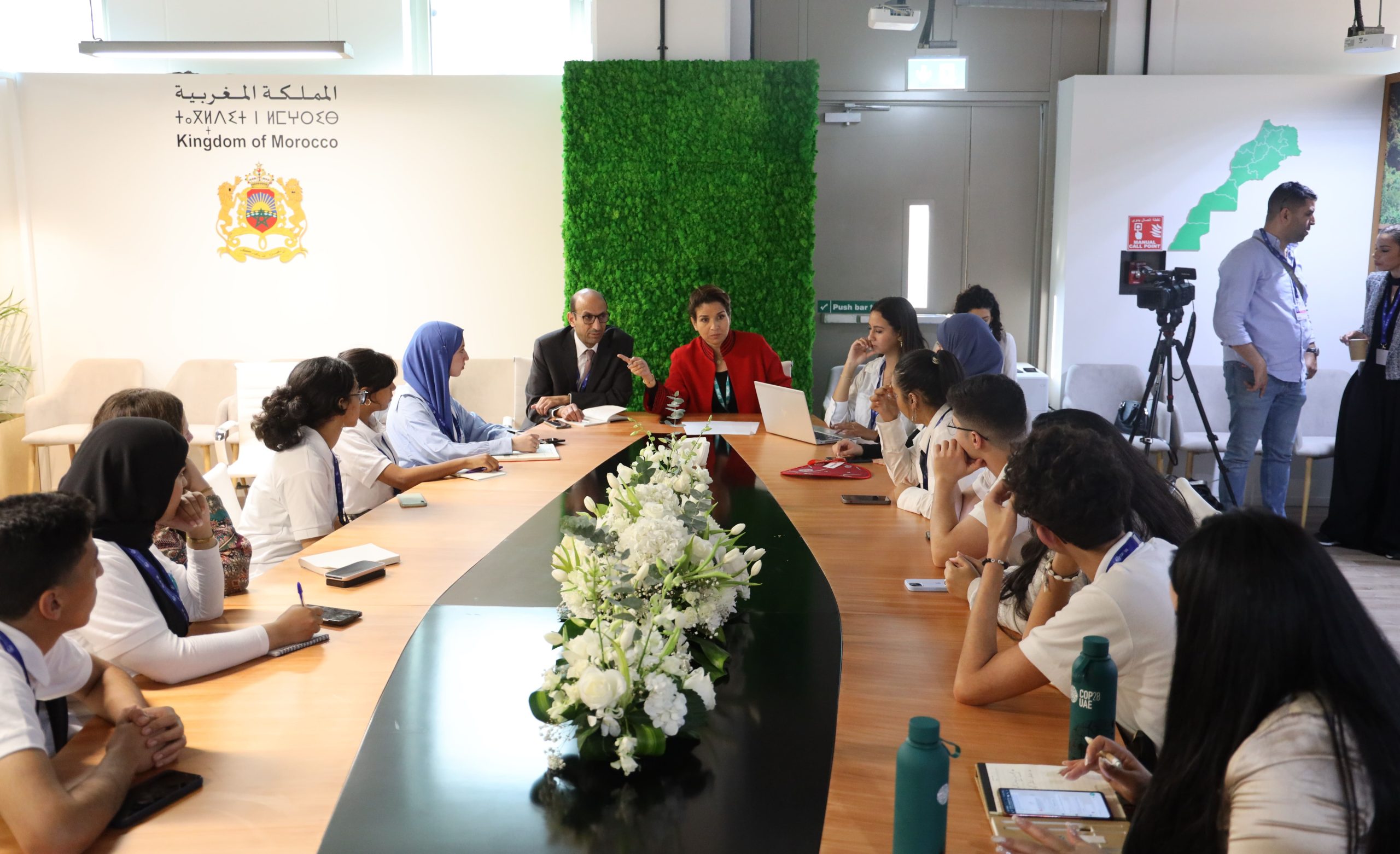
Interview with Young Reporters for the Environment with Mrs. Leila BENALI, Minister of Energy Transition and Sustainable Development of Morocco
